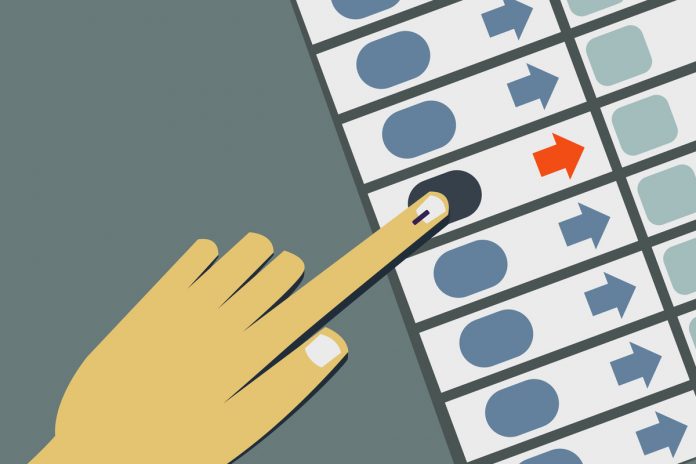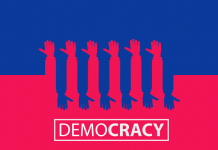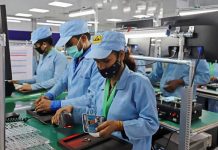This article is written by S A Rishikesh, from Shri Ramswaroop Memorial University, Lucknow. This article focuses on the importance of elections in a democratic setup. Should the elections be postponed in pandemic, and what steps must be ensured to conduct elections in times of a pandemic?
Table of Contents
Introduction
The coronavirus outbreak, known as SARS-CoV-2, has impacted and changed all our spheres of public and private life. It is a once in a decade challenge faced by governments all around the world, and most importantly, this threat is not likely to end soon. The democracies were no exception to the outbreak. The COVID-19 pandemic made the delivery of elections an enormous challenge worldwide.
The challenge of conducting elections in a vast country like India, which has the largest electorate in the world, adds more misery to our problems. At the best of times, the elections of India are one of the largest in the world and the most complex logistical exercise.
Elections and democracy
Regular and periodic elections are the essential feature of a democracy. This has been mentioned in Article 21(3) of the Universal Declaration of Human Rights. Elections are the symbol of democracy in the modern world. Elections are the central institution of a democratic government. In a democracy, the authority of the government derives solely from the consent of the governed. The principal mechanism for translating that consent into governmental authority is the holding of free and fair elections.
Jeane Kirkpatrick, scholar and former U.S. ambassador to the United Nations, has offered this definition – “Democratic elections are not merely symbolic…They are competitive, periodic, inclusive, definitive elections in which the chief decision-makers in a government are selected by citizens who enjoy broad freedom to criticize the government, to publish their criticism and to present alternatives.”
Importance of elections
Through elections, people choose their representatives. Certain elections ensure the citizens the opportunity to bring in a new leader or extend the current representative’s tenure by giving a mandate. Elections also stage the voice of the citizens. By voting against the current government, citizens show that ultimate power in a democracy rests with them.
Elections ensure public participation. Elections also open doors to new problems and issues raised by the public from time to time. Because the elections are conducted regularly, it acts as a system that keeps a check on the ruling government. So, elections are also a self-corrective system.
Can elections be ignored or skipped during a pandemic
Everything has pros and cons; similarly, it will not be the first when an election is skipped. It has happened before; delayed presidential elections of the Republic of Congo (2008) because of Ebola. In 2001, when the United Kingdom general elections were postponed because of the spread of foot and mouth disease. There are numerous such examples where elections have been postponed for the safety of citizens’ health.
The election is an antonym of social distancing. Elections are public events where people come together, exchange ideas, engage themselves in healthy debates about the future of the country and the direction it should head in. Elections generally involve candidates and their supporters reaching out to the masses to ask for votes. Door-to-door campaigning, pamphlets distribution, organising mass rallies, etc. are all the signs of a healthy election in a democracy, which in today’s context, will turn out very unhealthy for citizens.
The next thing of concern is the large turnout of people at the polling stations on the polling day. And it is not just people, but also the workers at those polling stations who work day and night to keep democracy moving.
The postponement of elections is done during an extremely rare situation when there is an evident threat to human life. Earthquakes, tsunamis, wildfires, epidemics, and pandemics are all examples of unexpected events over which humans have no control. Going by the textbook definition of democracy, even in emergencies, the rule of law must prevail. Rule of law says elections cannot be skipped as it is the very fundamental thing on which democracy stands.
Postponement simply means giving the previously elected representatives extra time in office, indifferent to the fact whether they are working good or bad. It means denying the public the right to shape public policy even though temporarily. A fear that can not be ignored is that the government may capitalise on the postponement and completely refrain from holding elections. If the elections are postponed and will be rearranged, then when? The government may use this time to get the public opinion in their favour.
The coronavirus has brought into the limelight what all goes into conducting an election. It is almost impossible to conduct elections during such a pandemic, or a natural disaster without any compromises. But, postponing poses a risk to democracy too. Measures were taken by authorities to prevent coronavirus from spreading during elections.
Best election practices during the pandemic
Elections around the world have demonstrated some of the best election practices that can be followed by the countries in their upcoming elections. The world has moved up from just ‘free and fair’ elections; along with it the demand of time is to conduct more accessible, inclusive, transparent, and safe elections.
Rallies are the most common and traditional form of campaigning which can turn out to be super spreader events. In this context, countries limited the number of people gathering in rallies while some completely banned political rallies and other such public gatherings, based on the situation of their respective countries. Banned rallies gave rise to a new practice: e-rallies. Various social media platforms like YouTube, Facebook, Instagram, televisions and radio channels were used by candidates for the same. Door-to-door campaigns were still allowed in most countries. No doubt that e-rallies were safest in this context. As it involved no human to human contact. A complete ban on the celebration after winning an election was also a welcoming step from most of the democracies.
Masks, sanitizers, gloves, temperature checks, social distancing and continuous sanitization are now the new normal at the polling booths. All the workers cover up themselves in full-body protective gear. The countries have come up with innovations and quick thinking in this desperate time for smooth conduction of elections. Many countries which have the option of ‘residential voting’ worked to expand their horizons, using mobile apps to post ballots. While many others focused on increasing the number of polling booths and poll timings so that the crowd could be avoided and social distancing guidelines could be compiled. Separate isolated polling booths for people showing high temperature during the polling day or asymptomatic patients were ensured so that they could exercise their right to vote.
Voter turnout trend in elections in a pandemic
What if the voters did not turn out to vote was a major question troubling political scientists and analysts. Low voter turnout is not a good sign for a democracy. But, contrary to all predictions, the voter turnout in almost all major countries increased. This came out as a surprise for many.
South Korea was the first country to go into elections in the COVID-19 pandemic. The voter turnout in South Korea was 61.2 percent – the highest voter turnout for the legislative election since 1996. South Korea has provisions for ‘presidential election’, which allows voters to cast their votes relatively easier. Apart from it, the health infrastructure of South Korea allowed the government to go forward in the election, even in the surveys before elections voters expressed their trust in the safety protocols of the government.
Situations in India were different, the health infrastructure crumbled by the pressure of the daily number of cases in the second wave. But the government went forward with the Bihar Assembly polls in 2020. Bihar has one of the lowest literacy rates in India, which means the government had to tighten its preparations so that all guidelines were followed. The Voter turnout in the Bihar elections was 57.05 percent higher than the 2015 Assembly elections when the situation was normal.
Furthermore, on analyzing the data of the International Institute for Democracy and Electoral Assistance (IDEA) in all the elections and referendums held during the COVID-19 pandemic, thirty-one countries showed an increased voter turnout. On the other hand, fifty-three countries showed a decrease in voter turnout. There was no direct connection between this decrease to the pandemic.
Risks involved in conducting elections during a pandemic
Undoubtedly, conducting elections during a pandemic involves a lot of risks. From public health to the health of officials and candidates themselves, ensuring free and fair elections in normal situations is a challenge in itself, pandemic just manifests it.
Financial risks
Elections are a costly affair. A lot of money is required for the successful conduct of an election. These costs increase more when extra personnel are in polling booths, to arrange masks, sanitizers, personal protection kits and means to reduce voters in a particular polling booth. These arrangements have increased the cost of elections in all the countries.
An election is a process where the budget can not be slashed even during a pandemic. The election is the bedrock of democracy and principles of sufficiency, transparency, sustainability, legitimacy, and contingency need to be maintained during the elections along with ensuring the health of the people involved in the process and the conduction of the process with integrity.
Health risks
The health risk was the most focused one during elections in this pandemic. Any bad decision would have turned elections into a major human-made catastrophic health disaster. To ensure the safety of the voters and the personals involved in the elections, various steps were taken by the countries across the world which were: social distancing, personal protective equipment for polling station staff, masks mandatory for voters entering polling stations, mandatory use of hand sanitisers, sanitation of electoral materials/periodic cleaning of polling station/vent polling stations, temperature checks, reduced number of people allowed in polling stations, disposable gloves mandatory for voters, extra polling station staff who will ensure compliance with health measures and social distancing, increased number of polling stations, multi-day voting or multi-day elections, dedicated polling booths for persons with respiratory symptoms.
Legal and political risks
The biggest risk in an election during the pandemic is the credibility of the election. At all costs, free and fair elections must be ensured. Voter turnout and the right to vote had to be ensured in these elections. The postponement of the election posed a threat to democracy and its principles.
Conclusion
There is no one size that fits all answer to the question of conducting elections during the pandemic. The answer will differ from country to country and from time to time. But there are some general guidelines which can be followed by all. Inter-agency coordination will play a key factor in these times:
- Public health should be the topmost priority. Every possible step must be taken to ensure the safety of voters and officials involved in the entire election process.
- COVID-19 appropriate behaviour must be followed during all the times in the election process, from campaigning to winning the elections.
- Alternate ways of elections must be developed to mitigate the risk.
- If no other option is left other than postponing the election, strict guidelines for the caretaker arrangements must be ensured.
The COVID-19 pandemic has affected the lives and wellbeing of citizens globally around the world. The decision of holding the election or postponing the election by the policymakers will further have an effect on people’s lives and the health of democracy in the future, the intensity of which will depend on the nature of measures taken up by the governments.
References
- https://www.idea.int/news-media/multimedia-reports/global-overview-covid-19-impact-elections
- https://www.orfonline.org/expert-speak/india-challenges-conducting-elections-during-covid19/
- https://www.coe.int/en/web/electoral-assistance/covid-19-response
- http://www.electoralmanagement.com/covid-19-and-elections/
LawSikho has created a telegram group for exchanging legal knowledge, referrals, and various opportunities. You can click on this link and join:
 Serato DJ Crack 2025Serato DJ PRO Crack
Serato DJ Crack 2025Serato DJ PRO Crack











 Allow notifications
Allow notifications


